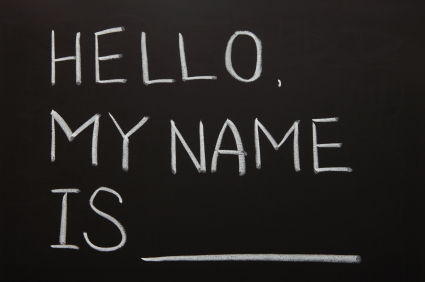Have you ever been asked by an editor to change a character’s name in your novel? If so, I promise you are not alone. It happened to me too. One thing I used to like about writing books is that I could christen my characters with names I thought whimsical but my husband would have never let us call our children. But a writer still has to be careful.
Same Syllables
Awhile back, I ran into an issue with names bearing the same number of syllables. I once named the sisters in my novel Norma and Mabel. I was able to distinguish between them in my mind, but my critique partners got them mixed up. And they were nothing alike! But based on their advice, I changed their names and am so glad I did.
Alliteration
Sometimes it’s hard to resist naming characters with the same letter of the alphabet, especially siblings. But three brothers named Zach, Zed, and Zeke, for example, can confuse your audience. It is easy to throw off your reader by minor characters sharing too many name similarities. If Barney is your main character, and then you have a minor character named Barnabas with one speaking line readers may wonder if Barnabas and Barney are related.
But It Works in Real Life!
In real life, Justin, Jason, and Jesse may be easy to distinguish because they are three-dimensional. You have visual and auditory cues to set them in your mind. But a printed page or ereader screen is two-dimensional, and the reader must form opinions based on whatever information the author provides. Most authors focus on the main character, then offer sketches of secondary characters. So while the reader may have a clear picture of Justin, poor Jason and Jesse may be more blurred and easy to confuse. Granted, many authors have the skill, desire, and need to set all three brothers so vigorously in readers’ minds that no one would confuse them. But today’s readers are impatient and few titles are character studies, so varied names do help readers.
Pronunciation
Some names can have more than one pronunciation, and this can be aggravating to readers. For instance, my name isn’t great for a heroine because few people get it right the first time. I am called Tamella, Tamelia, Tamula, Tamera – just about anything but Tamela, which rhymes with Pamela, but is indeed not Pamela, which I am also often called. I can defend myself in real life, but your hapless character on a page cannot. Our president, Steve Laube, has had his last name mispronounced his whole life as well (by the way, it is pronounced “lobby”).
May I Take Your Bag?
Some names have too much association with a famous character to work well if you want your character to be fresh and inviting. For instance, who can compete with Scarlett O’Hara? And when the TV show Dynasty was popular, the name Alexis carried the weight of a conniving character. That baggage has been left curbside since, but naming your protagonists after major stars, notorious or not, will unfairly burden your good-natured characters. (Obviously, names like Benedict, Ringo, Madonna, Bono, Cher, Judas, and Beyonce should be avoided.)
What Year Is It?
Naming conventions evolve over time. A name such as Midge or Eunice conveys a certain era. Therefore be careful to choose names that work with the book’s time period. When naming characters, go back to the names that were popular when they were born, not at the time your book is set. Here are some sites that can help with historically popular names:
Have fun!
Your turn:
What is your favorite character’s name? Least favorite?
What is the most creative name you have seen?
What character do you think has a terrible name?











